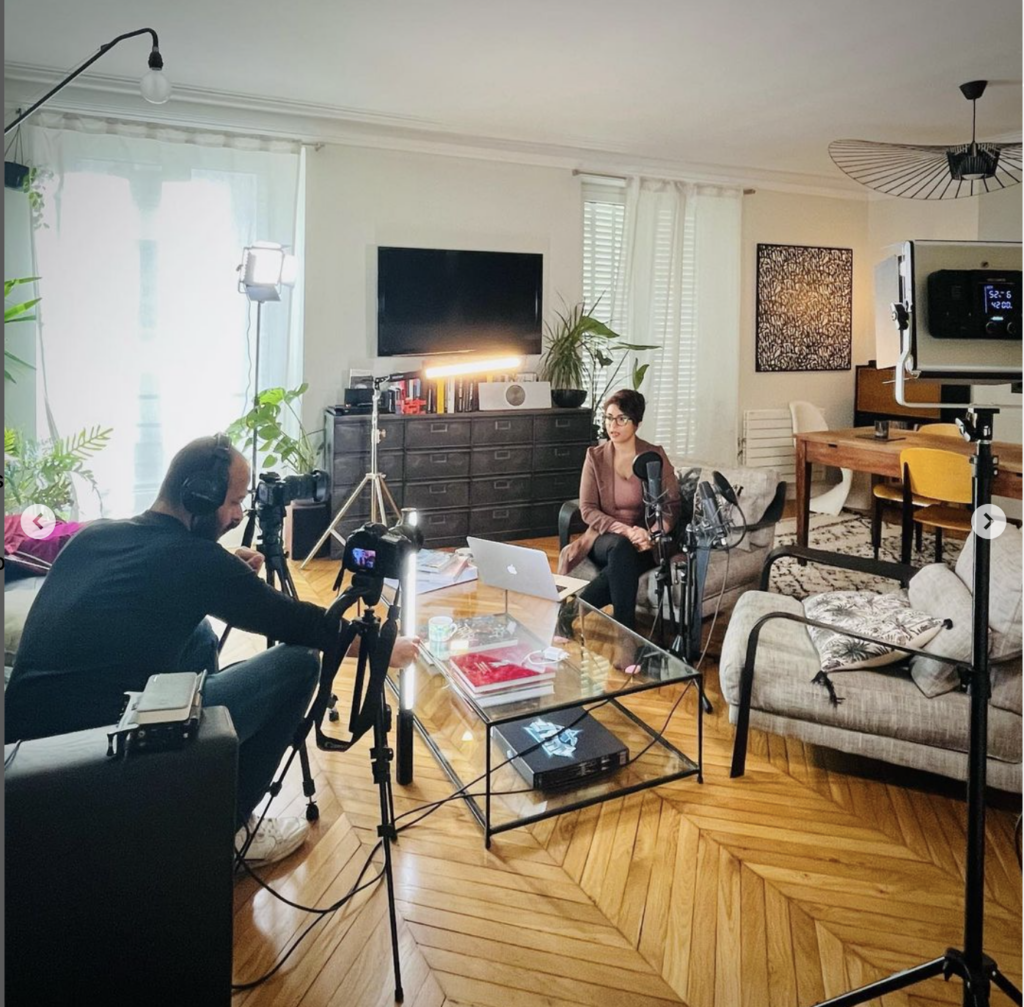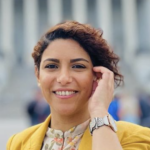Minds of the Movement
An ICNC blog on the people and power of civil resistance
by Solafa MagdyMay 31, 2024
اللغة العربية
Sign up for the series launch webinar on June 21, 2024
Today, I sit behind my computer screen on the balcony of my home in a city in southern France where I have now settled. I am writing about my experiences and the challenges I have faced since leaving Egypt nearly three years ago. As I write these lines and reflect on what has happened, I realize that it has not yet become a part of the past. My thoughts drift back to three years ago when I was on the balcony of my home in downtown Cairo, contemplating what lay ahead and wondering how I could recover and continue my journalistic work. At that time, I never imagined becoming part of the diaspora and continuing my journey from another country—starting from scratch.
My journey has not been easy. I faced numerous challenges in resuming my journalistic work, losing my homeland, and being separated from my loved ones. On September 26, 2021, I was forced to leave Egypt for security and political reasons, six months after my release from political detention, where I had spent nearly two years in pretrial detention due to my journalistic work.
I encountered obstacles in learning a new language, emotional and psychological support, and culture after settling in France, an opportunity granted through recognition of my journalism and the honorary French citizenship I received. Resuming my work was challenging, but I chose to resist instead of surrendering. I realized that my voice as a journalist still held great importance and that I was responsible for conveying my people's suffering to the world, defending human rights, and striving for positive change. Therefore, I divided my efforts into two main path, which I explore below.

Credit: Author.
Breaking the silence: Bridging decision-makers and exiled journalists
I refused to let my voice be silenced in exile. I hosted two podcasts aimed at connecting Western decision-makers and governments with journalists and human rights defenders in Egypt, including those forced to leave their homeland for political or security reasons. I aimed to be a voice for the marginalized and a window into a reality hidden from many eyes, highlighting how military cooperation between Western countries and their support for the dictatorial regime in Egypt has impacted human rights and restricted the public sphere. Through this, I was able to build a bridge between these journalists and Western decision-makers. My belief that conveying the struggles of journalists and activists to Western ears could make a real difference drove me to keep going.
I firmly believe that free journalism is a powerful tool for change and that sharing the voices of those who have been silenced is essential for promoting democracy and justice worldwide.
My mission is not easy, but my determination to give a voice to the voiceless is a strong motivator to persevere. I focus on issues that have not received enough coverage, highlighting the violations occurring in Egyptian prisons and the inhumane conditions faced by political prisoners, especially women.
My goal is clear: to create global awareness of the suffering these individuals endure to push governments to take real steps toward change and to stop the pretrial detention of peaceful defenders, journalists, and women.


From prisoner to advocate: A voice from inside women's prisons
My experience as a journalist in exile is not the only challenge I have faced. I have spent some time as a political prisoner in Egypt and became intimately acquainted with the suffering of imprisoned women. When I had the opportunity to be a voice for the voiceless through my fellowship with the Tahrir Institute for Middle East Policy in the United States, I dedicated my time to documenting the conditions of women's prisons.
By publishing articles that document my testimony and the testimonies of former women political prisoners, these articles shed light on their daily lives behind bars—how they live, resist persecution, navigate relationships with other cellmates and female prison guards, and how they survive each day. In addition, I organized U.S. Congressional meetings to draw attention to the struggles these women face. We urged Congress to exert pressure on the Egyptian regime, calling for an end to arbitrary detentions and secure support and signatures on a letter from the bipartisan Congressional Women’s Caucus, urging President Sisi to release women political prisoners and then release all women political prisoners.
The prison experience was harsh and full of challenges, but it was also an opportunity to learn and grow. I heard stories from women imprisoned for their political opinions or human rights activism, and I witnessed the daily abuses they endured. Through my work with the Tahrir Institute for Middle East Policy, I was able to build a strong support network and collaborate with global human rights organizations to pressure governments to improve prison conditions and ensure the rights of female prisoners.
Today, as I reflect on my journey, I am proud to have turned my hardships into opportunities to advocate for human rights and justice—even from exile. Still, I count the hours, days and years until I will witness the moment of my return to my homeland, with my head held high.

Solafa Magdy
Solafa Magdy is an award-winning Egyptian journalist and human rights defender who endured nearly two years of imprisonment in Egypt due to her journalistic work. She lives in exile in France, having been recognized by the Paris mayor for her dedication to defending human rights.
Read More